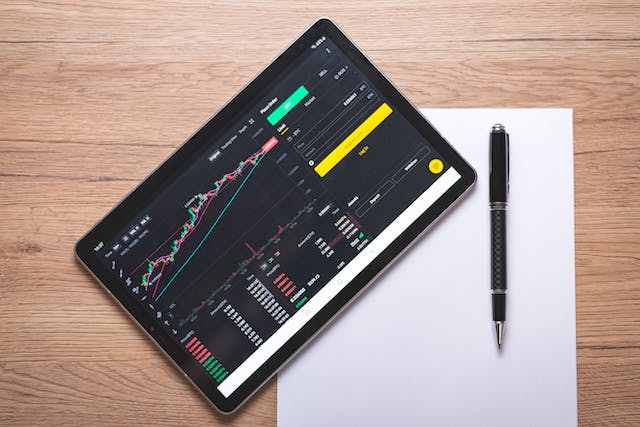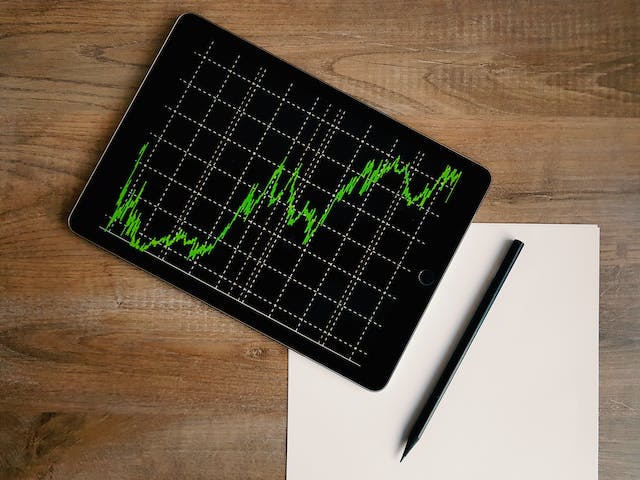In the stock trading industry, staying ahead of the game is crucial. And that’s where Artificial Intelligence (AI) comes into play. With its ability to analyze large amounts of data at lightning speed, AI has changed the way we trade stocks.
But what exactly is AI? How does it work? And what are the benefits and drawbacks of using AI in stock trading? If you’re curious about these questions, then you’re in luck! In this detailed guide, we will explain it all.
The Role of AI In Stock Trading
The role of AI in stock trading cannot be overstated. With its advanced algorithms and machine learning capabilities, AI has the power to analyze massive amounts of data quickly and accurately. This enables traders to make more informed decisions and execute trades faster.
One of the key roles of AI in stock trading is predictive analytics. AI can identify patterns and trends that human traders may miss by analyzing historical market data, news articles, social media sentiment, and other relevant factors. This allows for more accurate predictions about future price movements, giving traders a competitive edge.
AI also plays a crucial role in risk management. It can monitor portfolios in real-time and automatically adjust positions based on predefined risk parameters. This helps minimize losses and maximize profits by ensuring that trades are executed within acceptable risk boundaries.
Furthermore, AI can automate the execution process by placing trades based on predefined criteria without human intervention. This saves time and eliminates emotional biases that can cloud judgment during high-pressure situations.
In addition to these key roles, AI can assist with portfolio optimization by suggesting optimal asset allocations based on individual investor preferences and goals.
Benefits of AI Trading
One major advantage of AI is the ability to process large amounts of data in real-time. Unlike human traders, who are limited by cognitive skills, AI systems can analyze multiple sources simultaneously and make split-second decisions based on complex patterns.
Another benefit of AI trading is its ability to remove emotional biases from decision-making. Human traders often fall victim to fear and greed, leading them to make irrational choices that result in losses. AI systems operate purely on data and logic, eliminating these emotional factors and making objective decisions.
Furthermore, AI trading enables faster execution of trades. With minimal latency between receiving information and executing buy or sell orders, there is a reduced risk of missing out on profitable opportunities due to delays caused by manual processes.
Moreover, AI trading offers increased efficiency by automating repetitive tasks such as monitoring price movements or generating reports. This frees up time for human traders to focus on higher-level tasks like strategy development or building relationships with clients.
Lastly, yet importantly, we cannot overlook the potential cost savings associated with using AI for stock trading purposes. Reducing the need for extensive human resources while increasing productivity levels through automation and optimization algorithms makes it evident how much money could be saved over time when investing intelligently via an artificially intelligent system.
Drawbacks of Using AI to Trade Stocks
One major drawback is the potential for algorithmic errors. Although AI systems are designed to analyze vast amounts of data and make predictions based on patterns, there is always a risk of inaccuracies or glitches.
Another concern with using AI for stock trading is the lack of human intuition and judgment. While AI can process large quantities of data at incredible speeds, it may struggle to incorporate qualitative factors such as news events or market sentiment into its decision-making process. This could result in missed opportunities or poor investment decisions.
Furthermore, relying solely on AI for stock trading may lead to over-reliance on automation. Investors need to remember that markets are influenced by a wide range of factors, including geopolitical events and economic trends that algorithms may not accurately capture.
Additionally, there’s also the issue of transparency. The complexity of these algorithms makes it challenging for investors to fully understand how an AI system makes certain decisions. Lack of transparency can lead to mistrust and uncertainty among traders.
There is always the potential for unintended consequences when implementing new technologies. While technological advancements have undoubtedly made trading more efficient and accessible, they also introduce risks that need careful consideration.
Conclusion
Using AI in stock trading has revolutionized how investors approach the market. It offers numerous benefits, including faster decision-making, increased efficiency, and improved accuracy. By leveraging machine learning algorithms and predictive analytics, AI systems can analyze massive amounts of data in real time and make informed investment decisions.
However, it is important to acknowledge that there are also drawbacks. The reliance on algorithms leaves room for potential errors or glitches that could result in significant losses. Additionally, with the increasing popularity of AI-driven trading strategies, there is a concern about market manipulation or an overreliance on automated systems.
While AI can improve investment processes and generate profits for traders who leverage its capabilities effectively, it should be used as a tool rather than a replacement for human judgment. Combining artificial intelligence with human expertise can lead to more successful outcomes in stock trading.




